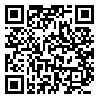Volume 12, Issue 24 (12-2022)
JRSM 2022, 12(24): 76-87 |
Back to browse issues page
Download citation:
BibTeX | RIS | EndNote | Medlars | ProCite | Reference Manager | RefWorks
Send citation to:



BibTeX | RIS | EndNote | Medlars | ProCite | Reference Manager | RefWorks
Send citation to:
Choopan Nezhad L, Yaali R, Movahedi A R. The Effect of Mental Practice with Dominant and Non-Dominant Hand on Immediate and Delayed Retention of Badminton Backhand Short Service. JRSM 2022; 12 (24) :76-87
URL: http://jrsm.khu.ac.ir/article-1-2795-en.html
URL: http://jrsm.khu.ac.ir/article-1-2795-en.html
1- Kharazmi University of Tehran
2- Kharazmi University of Tehran ,rasoolyaali@yahoo.com
3- University of Isfahan
2- Kharazmi University of Tehran ,
3- University of Isfahan
Abstract: (6251 Views)
The purpose of this study was to determine the effect of dominant and non-dominant mental practice on Badminton's backhand short service. A total of 20 girls aged 12-14 years old from the city of Goldasht were selected and purposefully selected and randomly divided into two groups. Both training groups trained in 30 sessions, in which 50 performance were made to visualize the skill of the service mentally. In order to compare the two groups, the mixed ANOVA and Bonferron's post hoc test were used. Comparing the between-group, the results showed that mental practice with dominant hands was not significant in dynamic environment and interactive exercise, but subjective exercise was significantly (P <0.05). No significant results were obtained in the within group comparison, but given the low effectiveness, it seems that the difference between the two groups is very close to meaning. Research findings suggest that coaches and teachers of interactive practice can benefit from less-than-lateral mental practice to improve the performance of their athletes in training sessions.
Keywords: Mental Practice, Transfer, Laterality, Motor LearningMental Practice, Transfer, Laterality, Motor Learning
Type of Study: Research |
Subject:
motor behavior
Received: 2019/01/15 | Accepted: 2019/05/1 | ePublished ahead of print: 2020/10/24 | Published: 2022/12/31
Received: 2019/01/15 | Accepted: 2019/05/1 | ePublished ahead of print: 2020/10/24 | Published: 2022/12/31
References
1. Edwards WH. Motor learning and control: From theory to practice. Cengage Learning; 2010 Aug 5.
2. Sage GH. Motor learning and control: A neuropsychological approach. Brown; 1984.
3. Schmidt RA, Lee TD, HN. Motor control and learning: A behavioral emphasis. Human kinetics; 2005 Oct 30.
4. Magill R, Anderson D. Motor learning and control. New York: McGraw-Hill Publishing; 2010.
5. Brain Facts: A Primer on the Brain and Nervous System. United States: Society for Neuroscience, 2012.
6. Iglesias-Soler E, Mayo X, Dopico X, Fernández-Del-Olmo M, Carballeira E, Fariñas J, et al. Effects of bilateral and non-dominant practices on the lateral preference in judo matches. Journal of sports sciences. 2018;36(1):111-5. [DOI:10.1080/02640414.2017.1283431]
7. Guilherme J, Garganta J, Graça A, Seabra A. Influence of non-preferred foot technical training in reducing lower limbs functional asymmetry among young football players. Journal of sports sciences. 2015;33(17):1790-8. [DOI:10.1080/02640414.2015.1012100]
8. Dickstein R, Deutsch JE. Motor imagery in physical therapist practice. Physical therapy. 2007;87(7):942-53. [DOI:10.2522/ptj.20060331]
9. Allami N, Paulignan Y, Brovelli A, Boussaoud D. Visuo-motor learning with combination of different rates of motor imagery and physical practice. Experimental Brain Research. 2008;184(1):105-13. [DOI:10.1007/s00221-007-1086-x]
10. Lafleur MF, Jackson PL, Malouin F, Richards CL, Evans AC, Doyon J. Motor learning produces parallel dynamic functional changes during the execution and imagination of sequential foot movements. Neuroimage. 2002;16(1):142-57. [DOI:10.1006/nimg.2001.1048]
11. Gentili R, Papaxanthis C. Laterality effects in motor learning by mental practice in right-handers. 2015:231-42. [DOI:10.1016/j.neuroscience.2015.02.055]
12. Alipoor A, Agah Haris M. Investigating the reliability and validity of the Edinburgh Hand Excellence Questionnaire in Iran. 2007: vol 5 no 22.
Send email to the article author
| Rights and permissions | |
 | This work is licensed under a Creative Commons Attribution-NonCommercial 4.0 International License. |








